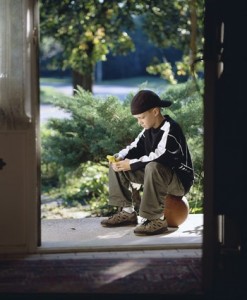NEW YORK (AP) ? Facebook's reach is wide but not deep. Few users surveyed in an Associated Press-CNBC poll say they click on the site's ads or buy the virtual goods that make money for it.
More than 40 percent of American adults log in to the site ? to share news, personal observations, photos and more ? at least once a week. In all, some 900 million people around the world are users. But many of them don't have a very high opinion of Facebook or trust it to keep their information private.
If Facebook the company were a Facebook user, it would have a lot of virtual friends but not many real ones, the poll suggested.
Users' distrust limits the value of the site's ads. Advertisers want to target their messages to the people most likely to respond to them. And the more Facebook knows about us, the better it will be at tailoring those ads to our interests.
Yet in the poll of U.S. adults published Tuesday, only 13 percent said they trust Facebook "completely" or "a lot" when it comes to keeping their personal information private. A majority, or 59 percent, said they trust Facebook "only a little," or "not at all."
Users' desire for privacy and Facebook's need to target advertising aren't necessarily opposing interests. Facebook doesn't expose information about its users directly to advertisers. Instead, it effectively accepts missions to deliver ads to groups of people, like "moviegoers" or "people planning trips to Europe." It's up to Facebook to figure out how to find those people.
But the company doesn't seem to be connecting very well. In the poll, 83 percent of respondents said they "hardly ever" or "never" click on the ads Facebook serves up.
The ones who did click through were enough to yield the company $4.34 per user in advertising last year. That's up from $3.07 in 2009. So the company is getting better at making money from its user base, but it has a long way to go to fill out the market capitalization of nearly $100 billion implied in its IPO pricing.
Google, another online advertising company that walks a similar line between ad targeting and privacy, makes more than $30 per user, per year. People also like it more. In the AP-CNBC poll, 71 percent of respondents had a favorable opinion of Google, compared to 51 percent for Facebook.
"Somehow Facebook still hasn't stumbled upon a model that's proven consistently successful for marketers, or that brings in the massive revenues to match the site's massive user base," Forrester Research analyst Nate Elliott said in a blog post.
The Wall Street Journal reported Tuesday that General Motors Co. plans to stop advertising on Facebook because the company has concluded that the ads are ineffective. The paper cited anonymous sources.
GM spokesman Greg Martin confirmed that the company doesn't plan to continue ads on Facebook, but said it will keep paid content on company pages that promote its products. He would not say why, but the company said it reassesses ads continually to measure how effective they are.
Debra Aho Williamson, an analyst at research firm eMarketer, said Facebook has plenty of opportunities to be a better link between advertisers and users. For instance, it can be more effective when it places an ad in a social context. People are much more likely to click on an ad if a friend has already "liked" it or if it consists of a comment a friend posted on the brand website, she said.
"This all fairly new and experimental. I don't think we've seen the full results of what adding social context means when it comes to the response to advertising," she said.
Advertising made up 82 percent of Facebook's revenue in the latest quarter. The rest came from the purchase of Facebook "credits" for the purchase of virtual goods, like cows in "Farmville" or chips in "Zynga Poker." But like advertising, this is a business that touches only a minority of Facebook users. Last year, 15 million users, or only 2 percent of the total, bought any credits at all.
If Facebook wants to help stores selling something other than virtual bling, it has to overcome skepticism among users first: The poll found that a majority of respondents, or 54 percent, would feel "not too safe" or "not safe at all" buying goods such as clothes or services such as travel from the site. Only 8 percent said they would feel "extremely safe" or "very safe."
The Associated Press-CNBC Poll was conducted May 3-7, 2012, by GfK Roper Public Affairs and Corporate Communications. It involved landline and cell phone interviews with 1,004 adults nationwide and had a margin of sampling error of plus or minus 3.9 percentage points.
___
Online:
http://www.ap-gfkpoll.com
http://facebook.cnbc.com
"; var coords = [-5, -72]; // display fb-bubble FloatingPrompt.embed(this, html, undefined, 'top', {fp_intersects:1, timeout_remove:2000,ignore_arrow: true, width:236, add_xy:coords, class_name: 'clear-overlay'}); });
ufc on fox 2 weigh ins brandi glanville convulsions john tyler chuck elisabeth hasselbeck fran drescher






